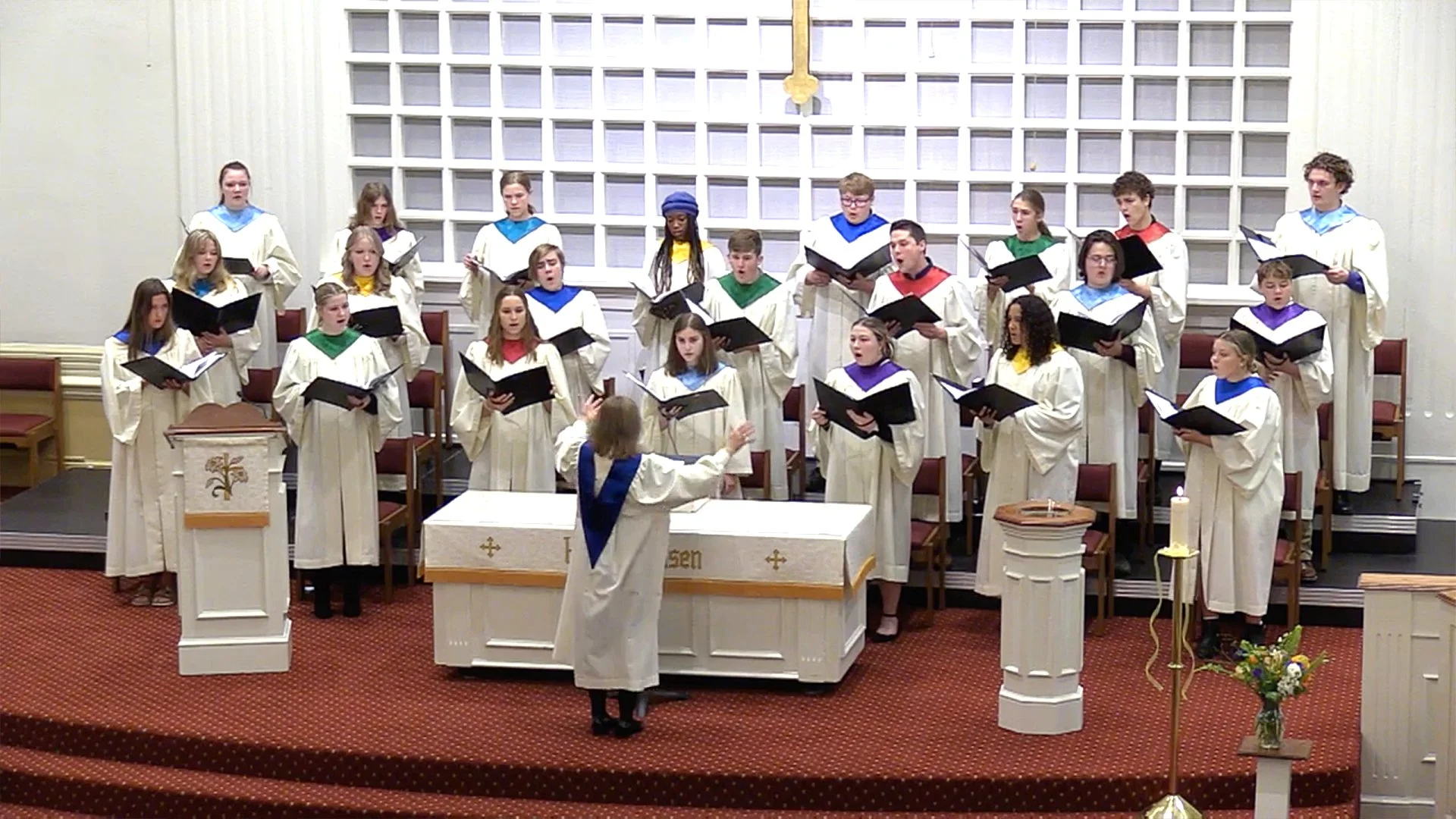Hymn of the Week: July 31, 2023
O For a Thousand Tongues to Sing
Glory to God: 610
Text: Charles Wesley 1739
Music: Carl Gotthelf Glaser 1828
O for a thousand tongues to sing
My dear Redeemer’s praise,
The glories of my God and King,
The triumphs of God's grace!
Jesus, the name that charms our fears,
That bids our sorrows cease;
’Tis music in the sinner’s ears,
’Tis life, and health, and peace.
Christ breaks the power of reigning sin,
And sets the prisoner free;
Christ's blood can make the sinful clean,
Christ's blood availed for me.
My gracious Master and my God,
Assist me to proclaim,
To spread through all the earth abroad
The honors of Thy name.
To God all glory, praise and love
Be now and ever given
By saints below and saints above,
The church in earth and heaven
Two verses not found in Presbyterian Hymnal 1990 or 2014.
He speaks; - and – listening to his voice,
New life the dead receive,
The mournful broken hearts rejoice,
The humble poor believe.
Hear him, ye deaf; his praise, ye dumb,
Your loosened tongues employ;
Ye blind, behold your Savior come;
And leap, ye lame, for joy!
Todays Devotion
What a great hymn this is!
While I began working on a hymn of my own this summer, during Montreat at the “Hymn Writing for Beginners” class, we were told to keep our first venture into hymn writing simple and straightforward by using this hymns pattern of rhyme for our first attempts.
Rhyme Time
You will notice a couple of things about how this hymn works. The first line has 8 syllables, the second line has 6, the third has 8 again and the fourth has 6.
In hymn language, you would see the following sequence of numbers either at the back of the hymnal in the Indexes or at the bottom of the page of the hymn. 8.6.8.6.
The rhyme scheme is A, B, A C which means that mostly the hymn’s first and third lines rhyme and the second and fourth do not always rhyme.
Just knowing this about the hymn is more than enough fodder to talk about how the text has changed over the years.
Hymns today are finding ways that the rhyming becomes more free verse which is what the later 20th century, 21st-century ear has gotten used to in poetry. You can see where this might be the case in some of the verses listed above. Notice the stanza that isn’t in the hymnal that rhymes dumb with come and employ with joy. A, B, A, B. The ways these subtle changes occur tell us a lot about theology and how ideas and beliefs change over time. Here are some of Eric Routley’s thoughts about the hymn from the 1950s from his book; Hymns and the Faith.
Conversion
If there is one word that divides the world, it is the word; “Conversion.” Bring it into a conversation and you will immediately arouse emotions that will divide unbelievers against believers and believers against each other. It arouses all the defense machinery in the minds of the sensitive, and all the aggressive energies in the zealous. It is, to use a vivid but (as so often) precise Americanism, the “hottest” word in the Christian vocabulary.
Conversion is of course associated especially with the name of Wesley. He was an Anglican priest but was feeling lost in his faith and more and more miserable. A spark of life began however when Wesley led a prisoner to Christ by preaching a gospel of faith and forgiveness, and he saw a man instantly transformed. His more enthusiastic Moravian friends encouraged him to have faith and to expect transformation and assurance.
On the morning of May 24, 1738, he opened his Bible to read the words: 'There are given unto us exceeding great and precious promises, even that ye should be partakers of the divine nature.'
That evening, a still depressed Wesley 'unwillingly' attended a Christian meeting in Aldersgate, London. There he heard a reading from the Reformer Martin Luther's Preface to the Epistle to Romans. At about 8.45 pm, as he heard Luther's words, something deep and dramatic took place.
In Wesley's words: 'While he was describing the change which God works in the heart through faith in Christ, I felt my heart strangely warmed. I felt I did trust in Christ, Christ alone for salvation; and an assurance was given me that He had taken away my sins, even mine, and saved me from the law of sin and death.'
Scriptural Word and Notion
While conversion is associated with Wesley, it is no monopoly of any family or denomination, or way of Christian thought. It is a scriptural word and notion. To be sure the word is not employed that often in the English Scriptures. It and its cognates appear about a dozen times in the Bible.
Two of its more famous contexts are the 51st Psalm: “and sinners shall be converted unto thee’ and in Matthew 18:3, “except ye be converted, and become as little children, ye shall not enter into the kingdom of heaven.”
But the idea is part of the essential teaching of the Bible.
After all (provided you do not use this offensive word) there is something almost platitudinous in saying that, things being as they are, there is a great need for radical change in people’s outlook; that in order that things may be as God meant them to be there needs to be a change in the center of gravity, or the focus of attention, from self to God. The idea of conversion is inseparable from any evangelistic activity, whether or not it be Christian or even religious.
This is a lot to unpack in one hymn devotion. Stay tuned next week for more reflection on this timeless and ever-changing hymn.







